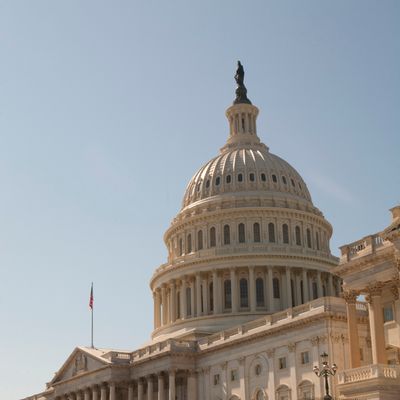
Good news! The economy added 163,000 jobs last month, just a bit over the level required to keep up with population growth. A return to a free fall now seems less likely. On the other hand, there is the small footnote that the return to full employment is nowhere in sight. The recovery looks safe for those of us who are not already screwed. That, sadly, has come to be the primary focus of our economic policy.
In the years since the collapse of 2008, the existence of mass unemployment has stopped being something the economic powers that be even pretend to regard as a crisis. To those directly impacted, the economic crisis is an emergency, a life-altering disaster the damage from which will endure for years. But most of those in a position to address it simply have not seen it in such terms. History will record that the economic elite has viewed the economic crisis from a perspective of detached complacency.
Two events from the last week have underscored this disturbing reality. The most widely covered was the Federal Reserve’s announcement that, despite a weakening economy, it still would not take steps to stimulate growth. The Fed may not like mass unemployment, but it dislikes inflation even more, and in its calculus, the hypothetical prospect of the latter outweighs the immediate reality of the former.
Here’s a second case, smaller but even more telling. The Obama administration has tried to prevail upon Edward DeMarco, the acting director of the Federal Housing Finance Agency, to offer lower mortgage rates to underwater home owners through Fannie Mae and Freddie Mac, which he controls. What interests me is not the proposal itself, nor even DeMarco’s obstinate refusal, but an editorial in the Washington Post applauding DeMarco for refusing to implement the program.
The Post is the voice of the Washington centrist establishment, and the logic of the editorial is a telling signpost. The Obama administration had argued to DeMarco that the mortgage relief was a pure win-win. Not only would the lower mortgage rates provide relief to Americans desperate to keep their homes, and secondarily to give them more purchasing power for other things that would provide a small economic stimulus, it would save the government money: with lower mortgage rates, fewer would default on their government-owned mortgages. DeMarco replied that he believed the taxpayers would end up spending money on the deal: not much, but some.
The Post’s thumbs-up editorial of DeMarco endorsed the reasoning that only a relief program that could be assured to cost the taxpayers nothing was worthwhile. It concluded, “with signs multiplying that the housing market may be finally bottoming out without this additional stimulus, perpetuating this particular battle does not strike us as the best use of the secretary’s time.”
There are signs we’ve hit bottom. Nothing to worry about here. Why risk the possibility of a small outlay merely to provide relief to hundreds of thousands of desperate people? This is such a perfect statement of the way the American elite has approached the economic crisis. They concede that it is a problem. But there are other problems, you know.
It’s important to respond to arguments on intellectual terms and not merely to analyze their motives. Yet it is impossible to understand these positions without putting them in socioeconomic context. Here are a few salient facts: The political scientist Larry Bartels has found (and measured) that members of Congress respond much more strongly to the preferences of their affluent constituents than their poor ones. And for affluent people, there is essentially no recession. Unemployment for workers with a bachelors degree is 4 percent — boom times. Unemployment is also unusually low in the Washington, D.C., area, owing to our economy’s reliance on federal spending, which has not had to impose the punishing austerity of so many state and local governments.
I live in a Washington neighborhood almost entirely filled with college-educated professionals, and it occurred to me not long ago that, when my children grow up, they’ll have no personal memory of having lived through the greatest economic crisis in eighty years. It is more akin to a famine in Africa. For millions and millions of Americans, the economic crisis is the worst event of their lives. They have lost jobs, homes, health insurance, opportunities for their children, seen their skills deteriorate, and lost their sense of self-worth. But from the perspective of those in a position to alleviate their suffering, the crisis is merely a sad and distant tragedy.






























